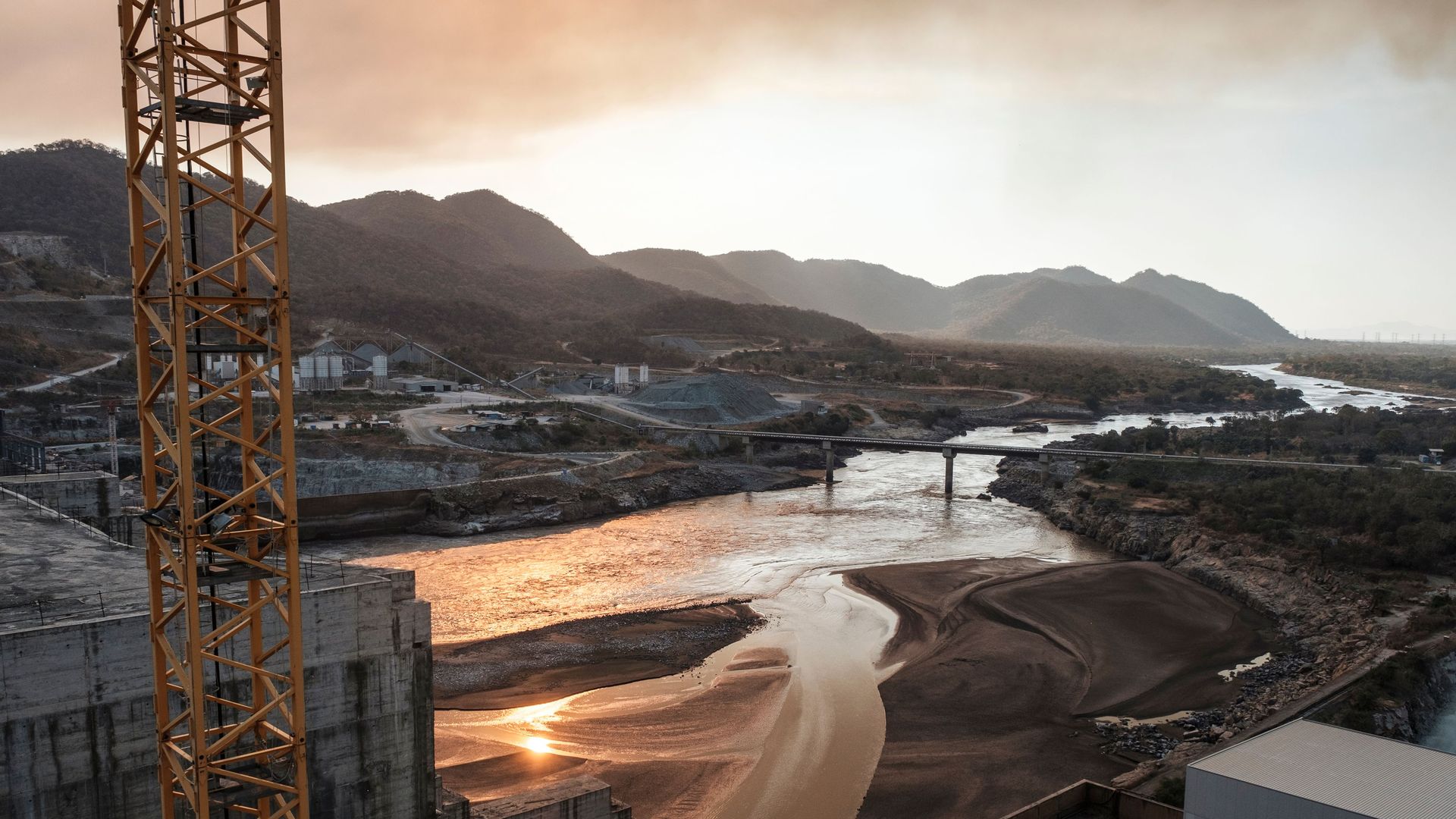Showdown over Ethiopian dam enters new phase after filling begins
Add Axios as your preferred source to
see more of our stories on Google.

The Blue Nile as it passes through the dam. Photo: Eduardo Soteras/AFP via Getty
Ethiopia has crossed a critical threshold after years of tensions with Egypt and Sudan, by completing the initial filling of its massive Grand Ethiopian Renaissance Dam.
Why it matters: Egypt and Sudan warned Ethiopia not to proceed without a deal ensuring their access to the Nile’s waters, on which Egypt in particular is almost entirely reliant.
Driving the news: Ethiopian Prime Minister Abiy Ahmed was both triumphant and conciliatory, declaring Ethiopia had shown the world it can “stand firm with its two legs,” while adding that a “breakthrough agreement” with Egypt and Sudan was growing closer.
- Egypt seems less confident on that second point. It has long accused Ethiopia — which holds most of the cards as the upstream country — of scuppering negotiations whenever a deal grows near.
- The Trump administration seems to agree, particularly since Ethiopia rejected an agreement it drafted in February. According to Foreign Policy, the U.S. is considering aid cuts to Ethiopia if talks stall again.
Where things stand: Fears that the first filling would become a flashpoint are lessening, as both sides have recommitted to African Union-led talks.
- Ethiopia has only impounded a relatively small amount of water — enough to test two turbines — and will take at least five years to fill the dam’s enormous reservoir (that duration is a source of intense disagreement).
- Still, every milestone in this multiyear process carries the risk of a flare-up, and crucial issues — particularly around Ethiopia’s commitments during droughts — remain unresolved.
From Ethiopia’s perspective, the dam is both a source of national pride and a statement that it doesn't need anyone's permission to harness the Nile, says William Davison, an International Crisis Group analyst in Ethiopia.
- “The dam is about the only thing that all Ethiopians agree on, so [Abiy] wouldn’t want to be seen as conceding on the filling of the dam in any way. It’s actually probably in his favor to be seen as standing up to Egypt and Sudan,” adds Mirette Mabrouk, the director of the Middle East Institute’s Egypt program.
Egyptian President Abdel Fattah el-Sisi, meanwhile, has called the dam dispute a “matter of life or death.”
- Some voices in Cairo have occasionally warned of war, though the government insists it’s committed to negotiations.
- “Armed conflict is sort of option Z-squared on everyone’s list. Nobody, nobody, nobody wants to go to war on this," Mabrouk says.
- "The thing is, at some point, if Egypt is going to have 110 million people and no water, that changes the construct slightly."
Sudan is caught in the middle. It’s worried about its own water supply and the potential for catastrophic flooding should the dam fail, but it's eager to tap a cheap new source of electricity.
What to watch: “We are past a point in this long, drawn-out process when tensions threatened to increase. And instead, we are back into that long, drawn-out process,” Davison says.
- Nearly a decade of such negotiations has come and gone. While Abiy claims to be nearing a breakthrough, it’s unclear what happens in the event of another breakdown.
